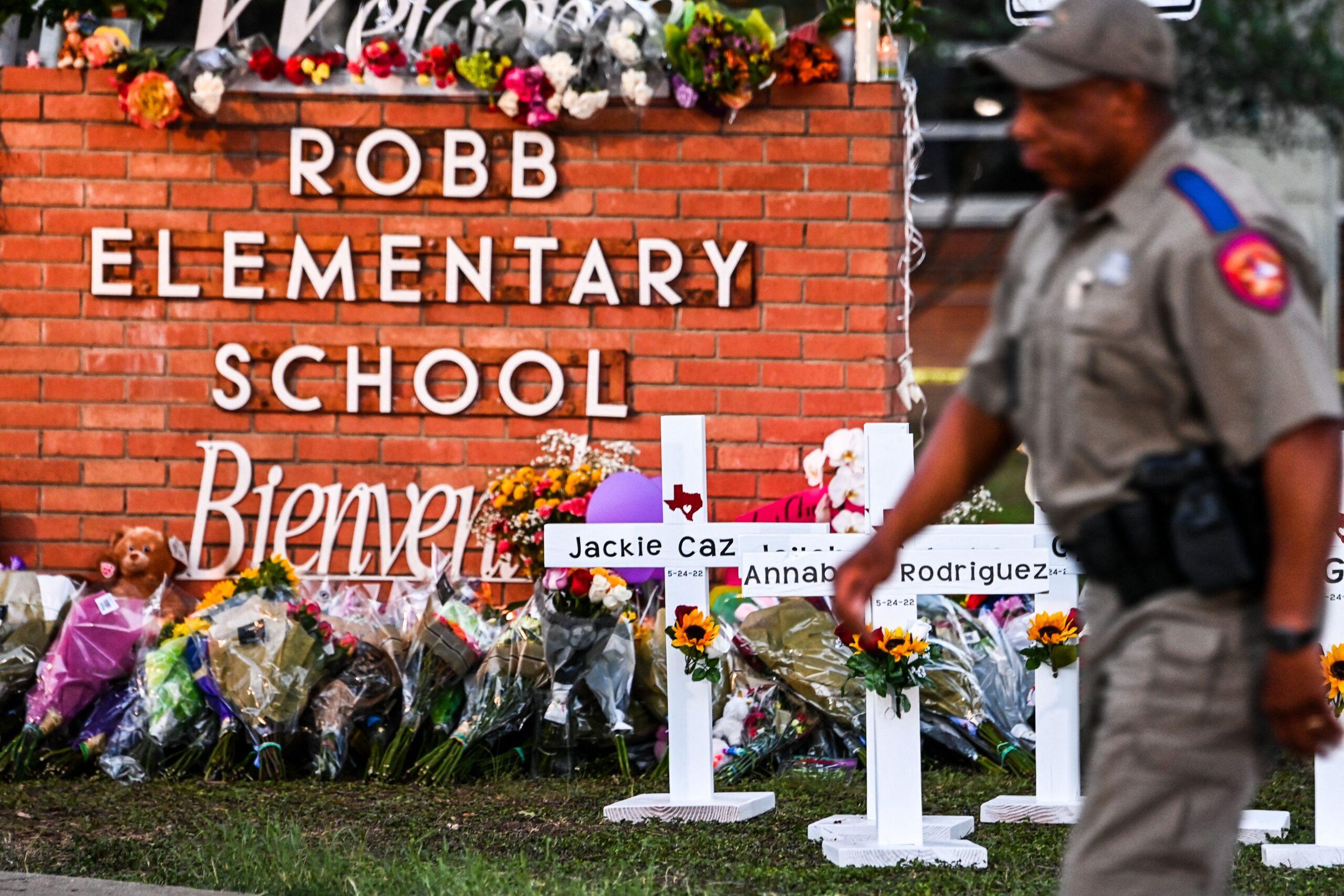America’s Gun Problem Is Impossible
The New York Times’ German Lopez, who has been reporting on guns and gun control policy for many years, joins Derek to discuss the issue in the aftermath of the Texas school shooting
The Texas school shooting is part of a grisly ritual in American life. A tragedy, followed by mourning, followed by inaction, followed by several months, followed by another tragedy. What can be done? What WILL be done? This episode isn’t about false hope. It’s about information. The New York Times’s German Lopez, who has been reporting on guns and gun control policy for many years, joins the podcast to answer as many questions as we can fit into a show, including:
Why are school shootings becoming more common in the U.S.?
What are the most successful gun control policies at our disposal?
Why doesn’t Washington ever do anything about this problem?
What happens now?
In this excerpt, Derek and German discuss some of the policy solutions that could reduce gun violence, including background checks and a ban on assault weapons.
Derek Thompson: You and I are not going to do a whole exegesis on the history of the Second Amendment here, but let’s just state for the record and stipulate the Second Amendment exists. It’s not going to go anywhere. The Bill of Rights is not going to be changed very likely in our lifetime, and America has simply grown up over the last 200-plus years with a Second Amendment that inscribes into our law and into our culture an association with guns and, frankly, a love of guns. I don’t share it, but it exists, a love of guns that does not exist in similarly developed countries. That’s just a part of the cultural sort of Step 1 that you have to deal with here.
I want to move sharply here to solutions, because the facts are too depressing to marinate in for too long. I feel like America has this grisly ritual now around school shootings in particular. When the massacre happens there’s this outpouring of shock and grief and then these exhortations that we have to do something on the policy front, because frankly it’s tragic and embarrassing to suffer tragedy after tragedy and to do shit all about it.
We’re going to get to Republicans in a second, but the menu solutions from Democrats tend to be pretty consistent, and I’m going to name four of those solutions: (1) background checks, (2) banning assault weapons, (3) generous buybacks for guns and ammo, (4) red flag laws.
Let’s talk about all four of these ideas, starting with background checks. The House of Representatives has already passed bills to expand criminal background checks and expand the waiting period for gun buyers who are flagged by the instant background check system, but those bills have languished. The Senate hasn’t moved on them because of Republican opposition. What are [background checks] and what does the research say about whether or not they work?
German Lopez: Yeah. The idea behind, they are called universal or comprehensive background checks, is everybody should have to pass some sort of check before they purchase a gun. That involves looking at their criminal record, mental health, maybe some other things that might come up as part of looking into somebody’s background. This is the kind of thing that a lot of people go through if they get a new job, especially in security or something along those lines, they’ll go through a background check.
The idea is like yes, you apply this to guns. Make sure that essentially people who are criminals or have criminal records or have mental health issues do not have access to guns. The U.S. requires this for most guns already, but there are a bunch of loopholes in the law.
The most famous one is the gun show loophole. That’s kind of like a misnomer, because really what the issue is there is a private sale. If I’m one person who owns a gun and I want to sell it to another person, I do not technically have to do a background check in most states. That can happen in a gun show, but it can also happen between family members, between friends. It happens all the time in the U.S.
So that’s a pretty huge loophole, if you don’t have to do a background check, and you can imagine since there are more guns than people in the U.S. it is not particularly hard for people to actually sell guns to their friends or family as a result.
Thompson: Do they work? What does the research say about whether or not they actually reduce gun violence in the areas of the states that pass them?
Lopez: This is where it gets a little more complicated, because there’s a good report from RAND from a few years ago that looked at a whole bunch of gun laws. Generally yes, if places have stricter background checks in place, they do have fewer gun deaths.
Where it gets a little complicated is that there are also some studies that suggest that comprehensive background checks alone—meaning when you go from that bar of just having background checks to making them universal or comprehensive—it’s actually not clear how big of an effect that has, if it has an effect at all.
I think the reason for that might be that even in those kinds of situations a lot of people are still going to buy guns illegally, essentially, and how do you enforce a background-check law for a dad selling a gun to his son? Are the police really going to be checking on every single one of those sales, if it even is a sale? It could be a gift, which would technically require a background check under these laws, but how are they going to enforce it? It’s just an extremely difficult thing to enforce.
But I would say that generally the idea is it adds some friction to exchanging guns, and that probably has some effect. It can just be really hard to pick up in some of these studies.
Thompson: Yeah. That makes sense. There are so many different ways that people can buy guns and there are so many guns that are available—more than 380 million at last count, or 390 million. That’s more guns than Americans. So of course it would be easy to potentially buy these on a black market, buy them in a private sale, find a way to access the guns that already exist, rather than go through the comprehensive background check to buy a new gun that’s being brought onto the market.
This is an interesting case, where I think we’re going to see this in a couple of the different policies that we’re going to talk about. It has an effect, it just doesn’t necessarily have the kind of dramatic effect that we would wish, which isn’t a reason necessarily to not do it. With thousands and thousands of gun deaths, if you reduce gun deaths by 1 percent you’re still talking about maybe thousands of lives saved, especially over a decade, but the effect isn’t necessarily that large.
Let’s talk about banning assault weapons. Tell me a little bit about what this would look like. For people’s understanding, this would make it illegal to buy the kind of weapons that were used in Texas, that were used at Sandy Hook, that were used in Buffalo.
It would seem obvious, I think, to a reasonable person that banning the sale of the sort of weapons that we see over and over and over again being used in mass shootings would make at least a little bit of a difference to mass shootings. So what are the pluses and limitations of this policy?
Lopez: The plus is, as you said, these are extremely powerful guns that are used often in these mass shootings, and they are used for a reason: They’re longer range. The velocity is faster. There are some articles out there I think that The Atlantic has run that speak to what these bullets coming from these guns do to bodies. It’s horrific.
So if you try to limit those, then yeah, you can have an effect. At the very least, you’re talking about a situation where maybe a mass shooting is less deadly, because if somebody is using a handgun they might not be able to get out as many bullets. They might not do as much damage. The injuries might be more treatable.
This excerpt was lightly edited for clarity.
Host: Derek Thompson
Guest: German Lopez
Producer: Devon Manze
Subscribe: Spotify

